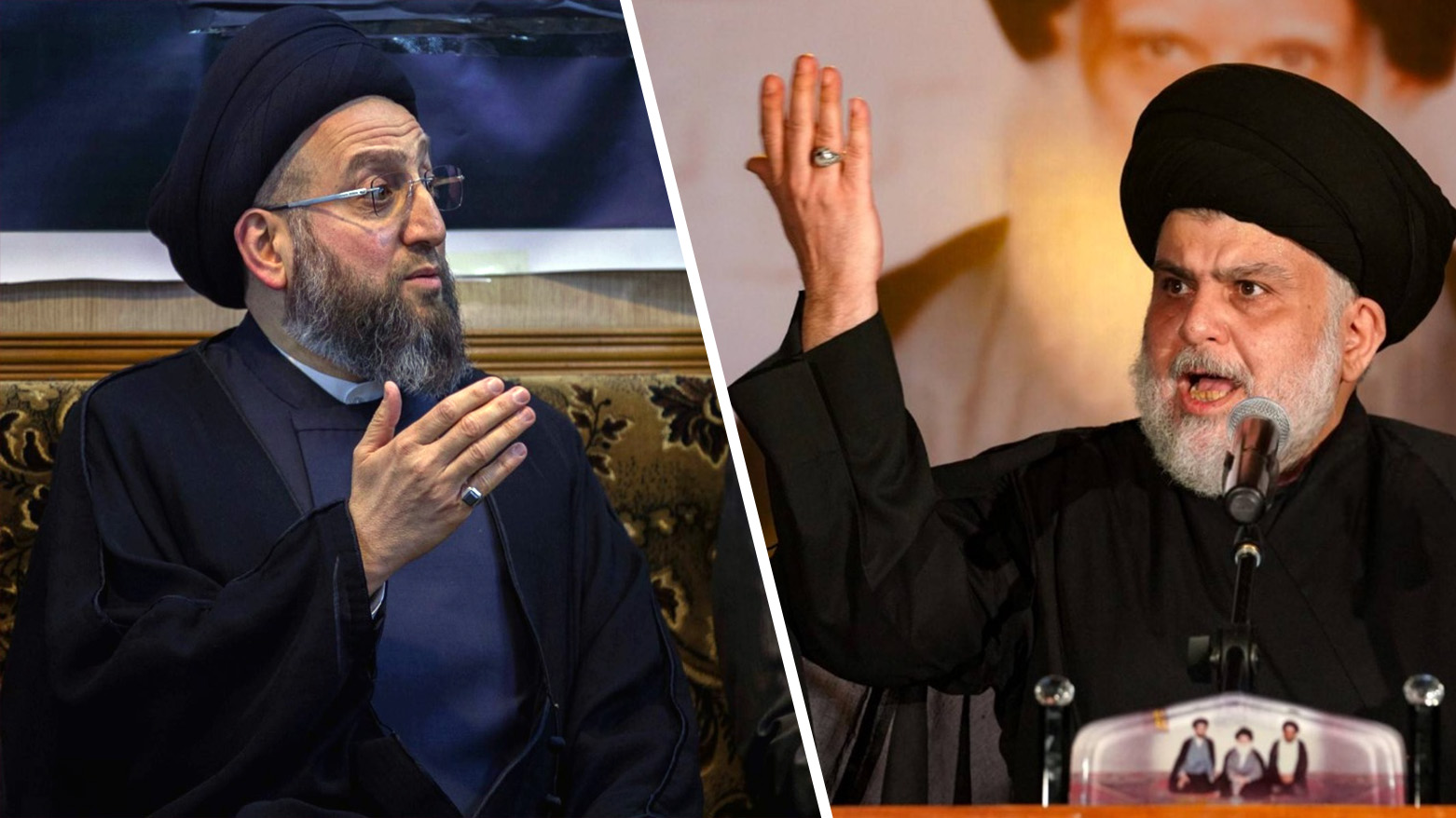‘This Election Will Be Decisive’: Al-Hakim Urges Sadr to Rejoin the Process
“This election will be decisive,” he said. “It is essential for all national forces, especially Sayyid Muqtada al-Sadr, to participate in the process. This is about safeguarding Iraq’s stability.”

By Kamaran Aziz
ERBIL (Kurdistan24) — With less than seven months remaining until Iraq’s scheduled parliamentary elections, political tensions are mounting as influential Shiite cleric Muqtada al-Sadr remains firm in his decision to boycott the vote. Ammar Al-Hakim, head of the al-Hikma Movement, has called on Sadr to reconsider, warning that the stakes of this election are historic.
Speaking at a public forum this week, Al-Hakim described the upcoming vote as a pivotal moment for Iraq’s political future, comparing it to the watershed 2005 election that followed the fall of Saddam Hussein’s regime.
“This election will be decisive,” he said. “It is essential for all national forces, especially Sayyid Muqtada al-Sadr, to participate in the process. This is about safeguarding Iraq’s stability.”
Al-Hakim’s appeal follows a formal letter sent by Iraqi President Latif Rashid to al-Sadr on April 16, urging him to reverse his boycott decision and take part in the democratic process. The President’s letter emphasized that a political process without the participation of the Shia National Movement would remain incomplete and risk deepening Iraq’s internal crises amid a volatile regional landscape. He praised the Sadr family's legacy in defending national dignity and insisted that only through active parliamentary engagement could the Sadrists advance needed reforms.
However, in a firm and unequivocal response issued just two days later, al-Sadr reaffirmed his boycott, stating: “When I called for boycotting the elections, I did not intend to postpone or cancel them. It saddens me that a great people participate in elections only to elect the corrupt and thieves of public money. I have not and will not participate alongside the corrupt and enemies of the people.”
This exchange reflects a deepening divide between Iraq’s executive leadership and the Sadrist movement. Known for its grassroots power and populist orientation, the Sadrist current sees the current political order as hopelessly corrupt and under undue foreign influence. Al-Sadr first declared his intention to boycott future political processes on March 27, 2025, reaffirming his longstanding position that Iraq’s post-2003 system serves sectarian and partisan agendas rather than the public good.
Adding to the complexity, Salih Mohammed al-Iraqi, a close associate and often a spokesperson for the Sadrist movement, released a statement on Saturday urging citizens to renew their voter registration cards—but simultaneously reinforced the call for a widespread boycott. In a message posted on Telegram, he wrote: “The number of those boycotting the elections must exceed the number of participants.” He stressed that updating voter cards is not a signal of participation, but rather an act of preparedness and civic responsibility.
This paradoxical strategy appears to be aimed at maintaining the Sadrist movement’s political relevance and administrative readiness while continuing its principled rejection of what it deems a rigged and compromised electoral framework. Analysts interpret this as a tactical maneuver to preserve influence, assert public visibility, and leave open the possibility of future re-engagement.
Muqtada al-Sadr’s movement, which draws its core support from Iraq’s urban poor and working-class Shiites, has been a powerful political force for nearly two decades. His party won the most seats in the 2021 elections but withdrew its MPs in 2022 in protest against political deadlock and interference by rival factions, particularly the Iran-aligned Coordination Framework.
The Iraqi Council of Ministers officially set the election date for November 11, 2025, following a majority vote on April 9. The Independent High Electoral Commission has since begun preparations, but the potential absence of the Sadrists casts a long shadow over the legitimacy and competitiveness of the upcoming vote.
Sadr’s boycott campaign, rooted in his anti-corruption and nationalist rhetoric, raises fundamental questions about Iraq’s ability to hold inclusive, representative elections. While President Rashid and leaders like Ammar al-Hakim emphasize unity and reform, the ongoing divide with the Sadrist current threatens to erode voter confidence and widen the disconnect between the political elite and ordinary Iraqis.
As Iraq moves closer to what many see as its most consequential election since 2005, the absence of the National Shiite Movement could tip the fragile political balance, lower voter turnout, and deepen public disillusionment with Iraq’s democratic process.
